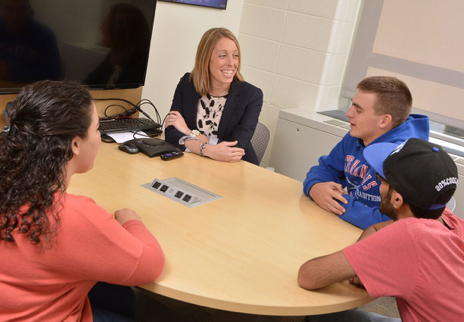Blog Entries
How to Gain and Identify Transferable Skills Through Your Extracurricular Activities
Did you ever NOT apply to a job because you thought you did not meet all of the requirements?
Maybe you see “proven leadership skills” as the top preferred qualification and automatically count yourself out?. Do not discredit yourself yet! You are forgetting about the student organization you participated in, the university committee you served on, or even the group project you led. These experiences shape what is known as your “transferable skills,” which more than qualify you for the job you did not think you were qualified for.
Let’s face it, you will not always have every single qualification for a potential job. However, the employer knows this and will more than likely look for transferable skills before disqualifying your application. What are some common skills you can capitalize on? Forbes lists the seven most sought out transferable skills:
- Technical
- Communication
- Critical Thinking
- Multitasking
- Teamwork
- Creativity
- Leadership
Great, now we know what the top transferable skills are, but how do we apply them? Obviously, each skill will change based on the position you are applying for, but there are some overarching experiences that pertain to each. Let's take these skills and relate them to what you can speak to on a resume, cover letter, or in an interview.
First, technical skills are becoming more common to align with technology advancements. Again, this competence may look different for a finance major than it will an education major, but there are still experiences that I bet you have taken part in during your college career. These experiences can range from creating an Excel or Google Sheet to keep track of a project, all the way to using social media to run a marketing campaign for your student organization. Wait a second…did you notice that too? That skill can also go under the “communication'' or “creativity” category. In fact, you will notice that most of these skills overlap.
Let's take a look at how to kill two birds with one stone:
Sometimes you have to get your point across quickly and in minimal words (such as on a cover letter or resume). This can then limit the number of examples you can provide that pertain to the position at hand. Let's use the example of a job in the education field. If you wanted to show strong teamwork and creativity skills, you could relate it to the creative lesson you worked with your co-op to plan. Plus, if the lesson goes well, it could dip into the effective communication category as well! Another example would be if you were actively seeking a position in the marketing field and wanted to show tangible strengths in leadership and multitasking. In this case, you could dip into your experience running social media accounts for multiple different organizations or departments. These all commonly overlap, and it actually tends to work in the job seekers' benefit.
As you can see, transferable skills are those that come from previous experiences that will help increase your ability to secure a job that maybe you did not think you were qualified for. Forbes listed the prominent seven, but there are many more that you can pull from. The college experience is meant to help students build these transferable skills from many different activities in the hopes that they can apply these skills to their career or life in general. My personal advice to you is to dive into those co-curricular experiences and allow them to work the magic that they are meant to! Plus, if you are ever struggling with figuring out where your transferable skills lie, you are always welcome to speak with the friendly staff at the Career Development Center!


Follow Career Development Center on Social
CDC on Facebook
Stay up to date with Career Development Center's posts on Facebook.
CDC on LinkedIn
See the latest posts on LinkedIn by the Career Development Center. Follow them on LinkedIn.
CDC on Instagram
See the latest posts on Instagram by Career Development Center.




